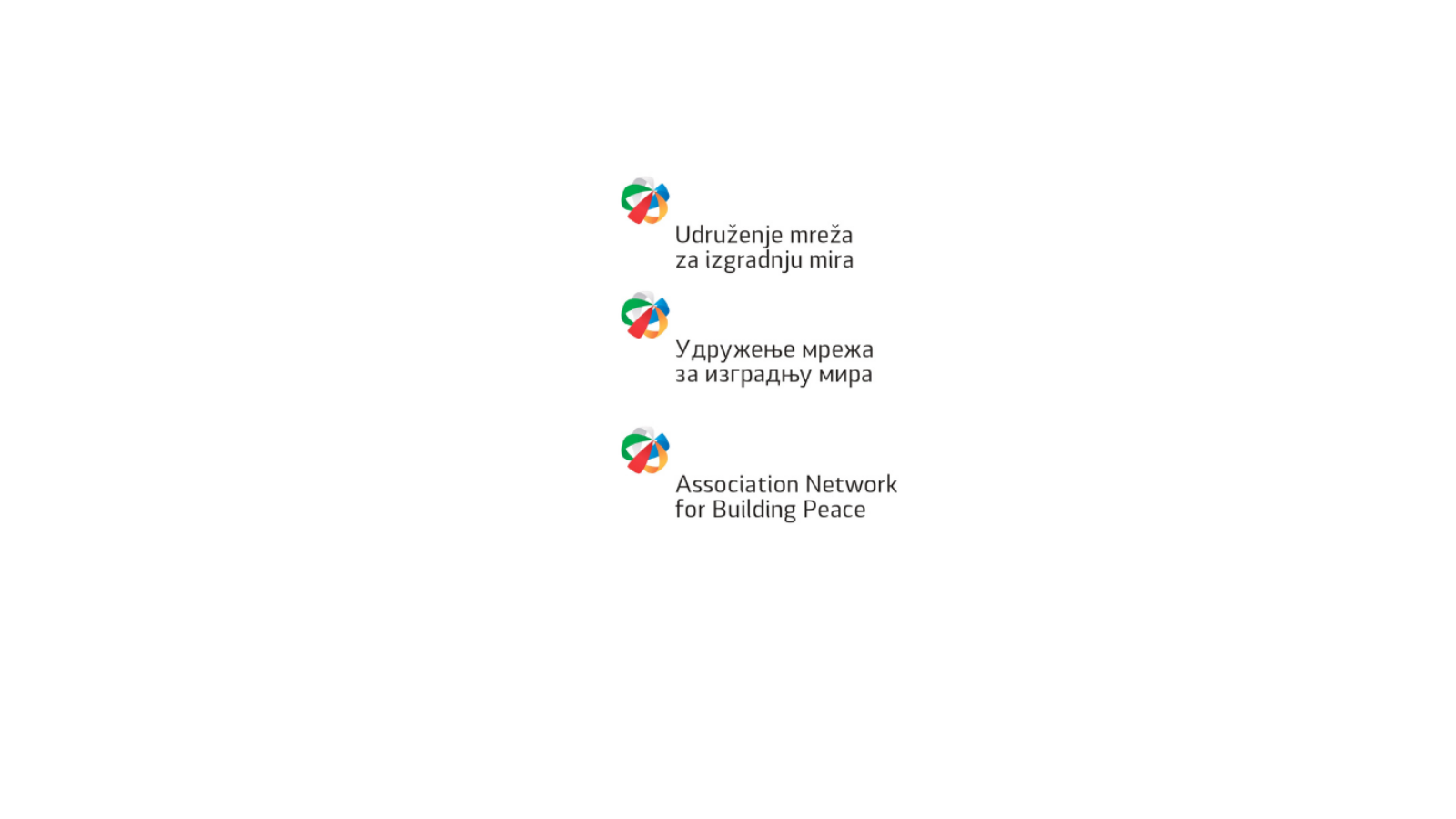Summary of the project implemented by Association Network for Building Peace
Dealing with the past and peacebuilding in the Western Balkans, especially in Bosnia and Herzegovina, represents a challenge not only for governmental and non-governmental organizations but also for peace researchers and activists. In the past three decades, different initiatives and modalities have been implemented to recreate the “experience of peace” in areas affected by war destruction in the 1990s. Now days, 28 years after the signing of the Dayton Peace Accords, it is necessary more than ever to strengthen the capacities of civil society for a relevant and circumstantial appropriate response. The answers to the challenges that arise from confronting the past and building sustainable peace based on applicable solutions are needed. Despite particular positive progress, it is evident that political instability in Bosnia and Herzegovina is often linked to dealing with the past and affecting citizens’ safety.
The research “Experiences in (re)building peace and alternative solutions: Lebanon and Bosnia and Herzegovina” will be based on understanding alternative approaches to dealing with the past. The Research aims to reduce destructive narratives in Bosnia and Herzegovina. This Research is a distinctive opportunity for all those who work on building sustainable peace that Bosnia and Herzegovina needs. The comparative analysis will open up new perspectives for developing peace policies in local communities and will be beneficial for civil society organizations and all the other relevant actors.
Nikola Vučić, an active expert associate of the Association Network for Building Peace, was given the opportunity to spend three months on a residential visit to Lebanon at the NDU University. Mr. Nikola Vučič will have the chance to research the topic of peacebuilding experience in Lebanon from September to November and compare the similarities and differences in practices and methods in Bosnia and Herzegovina. Both countries face similar challenges, which are a factor that disrupts the peacebuilding process after previous experiences of war. Also, both countries share the problem of widespread hate speech, which is a catalyst for further divisions. The comparative research approach will have its final version as an e-publication, which will be shared with members of the Network for Building Peace and other peace organizations, activists, and the media. The publication will serve as relevant material for researchers, peace activists, civil society organizations, and institutions for better profiling of their peace policies and will be promoted through a public event/conference attended by experts, activists, media workers, and others.
The departure of the journalist/researcher Nikola Vučić to Lebanon, the Research, the organization of the conference, and the panel with prominent peace builders from BiH were supported by SMART Balkans Ad Hoc Grant. This Grant will contribute to fruitful discussions on how to improve peacebuilding practices and find new, innovative, and alternative methods for implementing peace policies in post-conflict societies.
Project goals
The result of the research project with the working title – “Experiences in re(building) peace and alternative solutions: Lebanon and Bosnia and Herzegovina” will be a research-based understanding of alternative approaches to dealing with the past. The Research aims to reduce destructive narratives in Bosnia and Herzegovina and will be carried out through a comparative analysis of methods of dealing with the past in Lebanon and Bosnia and Herzegovina. The comparative research approach will have its final version as an e-publication, which will be shared with members of the Association Network for Building Peace and other peace organizations, activists, and the media. This publication will serve as relevant material for researchers, peace activists, civil society organizations, and institutions for a better understanding of their peace policies, and it will be promoted through a public event/conference attended by experts, activists, media workers, and others. The leader of the project, Nikola Vučić, as an experienced journalist, plans to apply the skills of constructive journalism that is oriented toward solutions, which represents the innovative approach to understanding alternative ways of dealing with the past in post-conflict societies. The research material will be presented at the conference in Bosnia and Herzegovina and will serve as a relevant tool for productive work in local communities. This effort will help civil society organizations strengthen the competencies of their members by understanding the experiences of other local communities with the same or similar problems.
Beneficiaries
- Peace activists, journalists, civil society associations in Bosnia and Herzegovina, decision makers and citizens of Bosnia and Herzegovina.
Main activities
- Preparation of methodology, design and structuring of list of questions for interviews which will be carried out in Bosnia and Herzegovina/Lebanon;
- In-depth interviews with activists, peace researchers, journalists, decision makers, as well as representatives of civil society organizations on the topic of alternative models in peace building;
- Writing an article and preparing an online publication based on the collected materials;
- Publication of articles;
- Conference in Sarajevo with panelists from Bosnia and Herzegovina.
Related news:
B&H and Lebanon: Sharing experiences of peacebuilding and democracy








